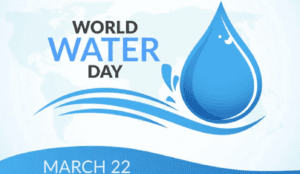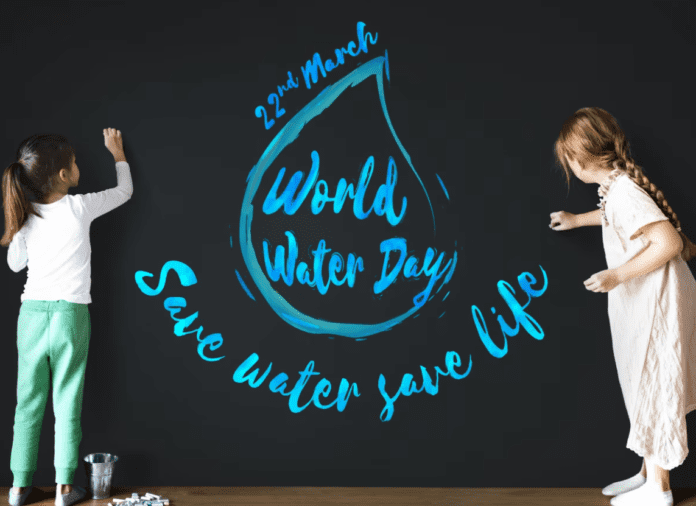Celebrating World Water Day A Vital Resource for Sustainable Future.
1 min read 2024-03-22, 04:00 PM IST
SummaryWorld Water Day: An annual event on March 22nd spotlighting the significance of water resources. 2024 Theme: “Groundwater – Shedding Light on the Unseen.” Groundwater Importance: Essential for drinking, farming, and industry. Challenges: Depletion, contamination, and climate change threaten sustainability. Solutions: Managing sustainably, conserving, controlling pollution, and adapting to climate. Individual Responsibility: Simple steps like saving water and proper waste disposal have impact. Collective Action: Advocacy, community efforts, and policy backing are vital for effective water management. Goal: Ensure clean and accessible water for present and future generations. |
World Water Day is observed annually on March 22nd, serving as a reminder of the crucial role water plays in our lives and the necessity to conserve and manage this invaluable resource. Initiated by the United Nations in 1993, this day sheds light on water-related issues globally and encourages actions to address water scarcity, pollution, and access to clean water for all.
The Importance of Water: Water is fundamental to life, supporting ecosystems, agriculture, industry, and human health. It sustains biodiversity, regulates climate, and drives economic activities. However, despite its significance, millions still lack access to safe drinking water, and many regions face water scarcity exacerbated by climate change and overexploitation.
Theme for 2024: Groundwater – Making the Invisible Visible: The theme for World Water Day 2024 focuses on groundwater, highlighting its importance, challenges, and the need for sustainable management. Groundwater accounts for a significant portion of the world’s freshwater resources, serving as a vital source for drinking water, agriculture, and industry. However, over-extraction, contamination, and inadequate governance threaten its sustainability.
ALSO READ : Timeless Wisdom: 5 Lessons from Nowruz, a 3500-Year-Old Festival, Still Relevant Today.
Challenges Facing Groundwater:
- Over-Extraction: Excessive pumping of groundwater for irrigation, urbanization, and industrial purposes has led to depletion, causing land subsidence, reduced streamflow, and saltwater intrusion in coastal areas.
- Pollution: Groundwater pollution from agricultural runoff, industrial discharge, and improper waste disposal poses risks to human health and ecosystems, necessitating remediation efforts.
- Climate Change: Altered precipitation patterns and rising temperatures affect groundwater recharge rates and quality, exacerbating water scarcity and amplifying existing challenges.

Actions and Solutions
- Sustainable Management: Implementing integrated groundwater management practices involving stakeholders, policymakers, and communities to ensure equitable access, recharge enhancement, and pollution prevention.
- Conservation and Efficiency: Promoting water conservation measures, efficient irrigation techniques, and land-use planning to reduce water demand and enhance resilience to droughts.
- Pollution Control: Enforcing regulations, adopting eco-friendly agricultural practices, and investing in wastewater treatment infrastructure to mitigate groundwater pollution.
- Climate Adaptation: Incorporating climate change considerations into groundwater management strategies, such as enhancing monitoring networks, promoting rainwater harvesting, and restoring wetlands for recharge.
Individual and Collective Responsibility: Every individual has a role to play in safeguarding water resources. Simple actions like reducing water consumption, fixing leaks, and practicing responsible waste disposal can contribute to water conservation efforts. Additionally, advocating for policies supporting sustainable water management and participating in community initiatives foster collective action towards achieving water security for all.
As we commemorate World Water Day 2024, let us recognize the importance of groundwater and commit to collective action towards its sustainable management. By raising awareness, implementing innovative solutions, and fostering partnerships, we can ensure the availability of clean and accessible water for present and future generations, paving the way for a more resilient and sustainable world.

